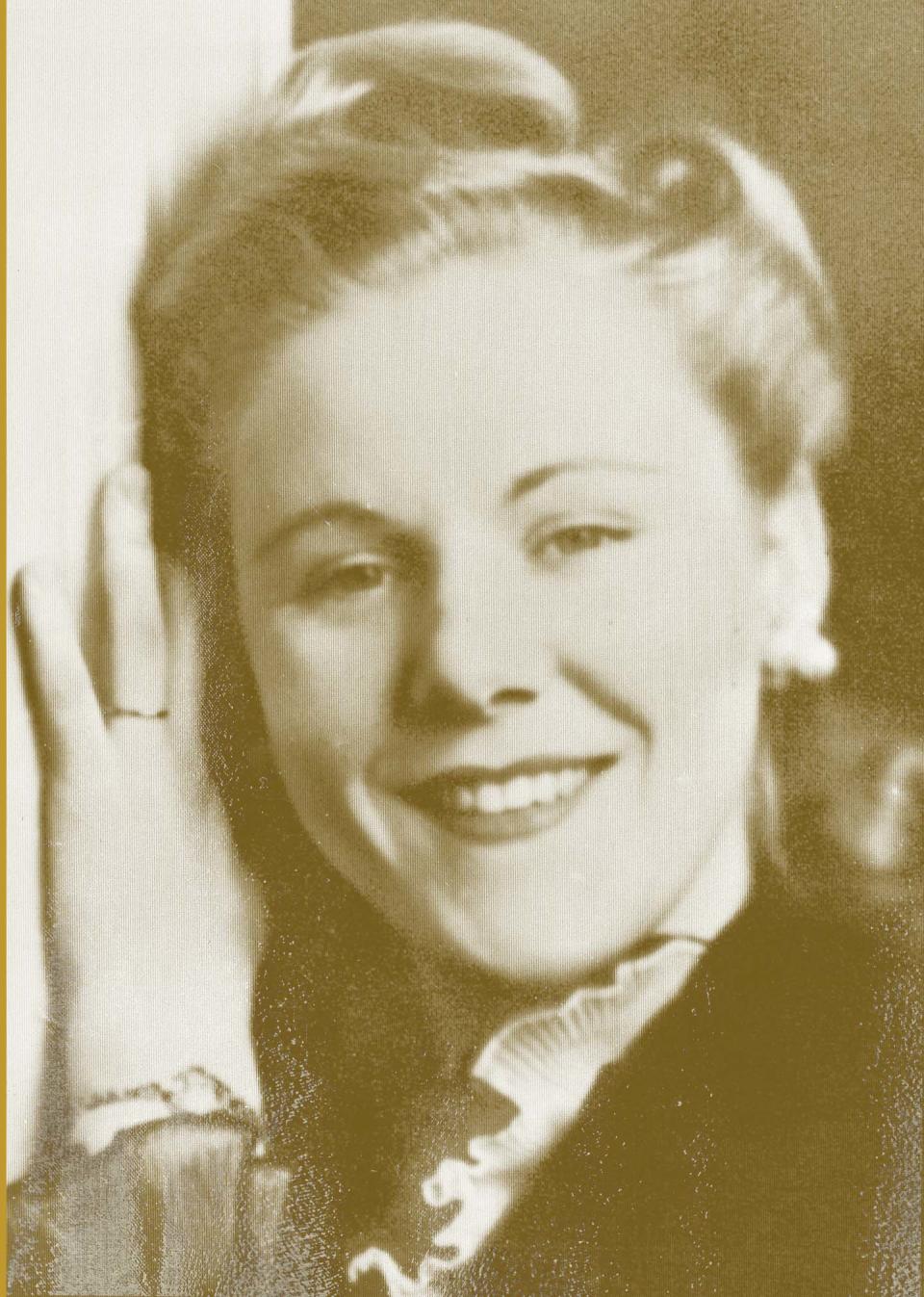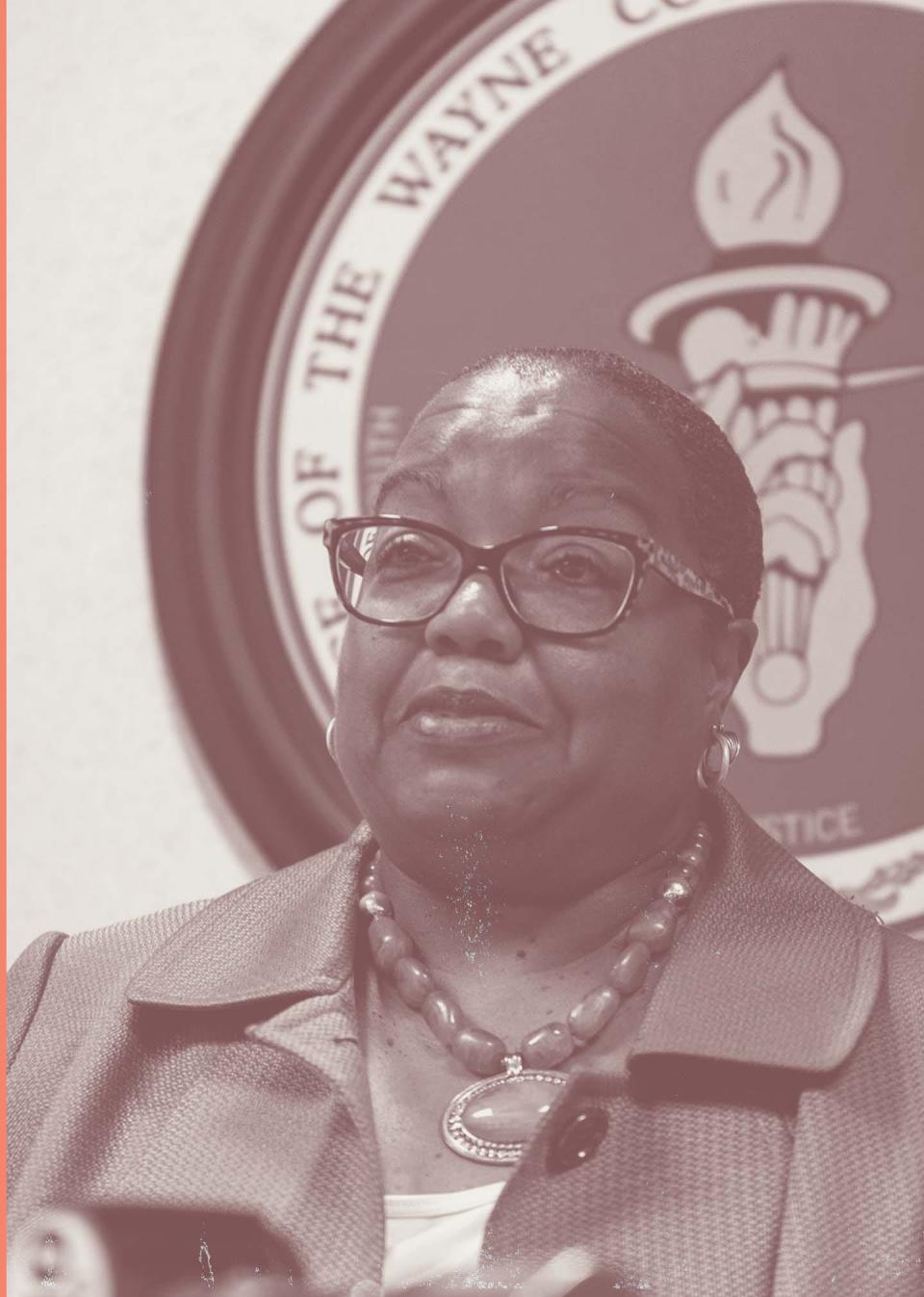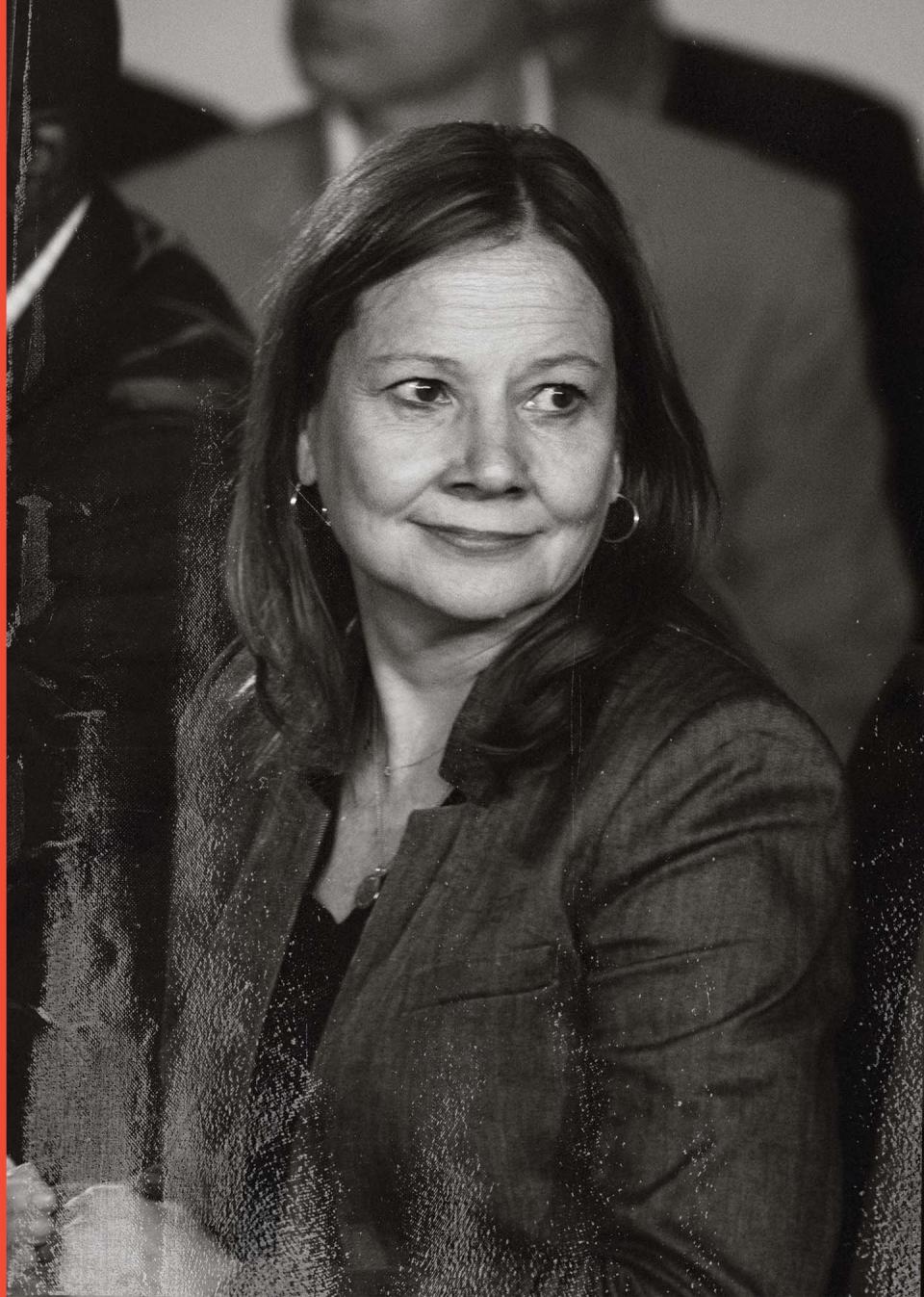GM CEO Mary Barra, singers Diana Ross and Aretha Franklin among inspiring women on Michigan list
So, what happened after the 19th Amendment – ratified in 1920 – gave women the right to vote?
Women had more influence because they finally had something politicians wanted: votes. Office seekers began to pay some attention to women and the issues they championed: investing in children and the underprivileged, health programs and education.
Just two years after winning the right to vote, women influenced Congress to pass the Cable Act of 1922 which allowed women who married foreign men to keep their U.S. citizenship. Until then, women were required to take the citizenship of their husbands. Men who married foreign women were not required to give up their U.S. citizenship.
The 19th Amendment, said Kevin Corder, a political science professor at Western Michigan University and an author of "A Century of Votes for Women: American Elections Since Suffrage, " did something else. It reshaped the public role of women.
"It was just a fundamental challenge to this idea that a woman's place is in the home," Corder said. "The right to vote preceded women entering the labor force, women catching up to men in educational attainment." And women as elected officials.
"Almost immediately women started running for office," said Meaghan Bergman, program director for the Michigan Women's Historical Museum and Hall of Fame in Lansing. "Women were ... empowered to not just vote but to run for office and start creating policy instead of just voting on policies."
Michigan women, who won the right to vote in 1918, were ahead of their sisters in many other parts of the country. In 1920, a teacher from Grand Rapids named Eva McCall Hamilton became the first woman elected to the Michigan Senate, where she worked to shape the Michigan Mothers' Pension Act that provided public funds for underprivileged children in their homes.
And in 1925, Cora Reynolds Anderson – also a teacher who established the first public health service in Baraga County in Michigan's Upper Peninsula – became the first woman and the first Native American elected to serve in the Michigan House of Representatives. Her focus: issues of health and well-being.
It would be years before Michigan elected a female governor: Jennifer Granholm, in 2003. But the 19th Amendment helped pave the way for her and for other women in politics, industry, the arts, social justice, civil rights and public health.
In commemoration of the 19th Amendment, which marks its 100th anniversary in August, the USA TODAY Network is honoring 10 American women from each of the 50 states, and the District of Columbia.
We chose women responsible for outstanding achievement in these areas: arts and literature, business, civil rights, education, entertainment, law, media, nonprofits and philanthropy, politics, science and medicine, and sports.
Are you registered to vote? Take the first step to making sure your vote counts.
We chose only American citizens who lived to see the ratification of the 19th Amendment. We limited our choices to American citizens who lived in the 100 years since the amendment was ratified.
It wasn't an easy task. Had we been able to include more women, we might have chosen the iconic Madonna, the outspoken, sexually edgy, defiantly feminist business whiz who, according to Guinness World Records, is the top-selling female musician in history.
Or Lily Tomlin, who as an entertainer and LGBT activist has spread a message of inclusion and activism.
Or even Rosie the Riveter, aka Geraldine Hoff Doyle, who worked briefly at an Ann Arbor factory and whose likeness is often credited with being the inspiration for the iconic “We Can Do It” Rosie the Riveter poster.
In the end, our choices came down to the ten women you see below.
Who is your Woman of the Century? Did we miss a woman you think should be on our list? We’d like to hear from you.
Aretha Franklin
Grammy Award-winning artist and the Queen of Soul
(1942-2018)

The Queen of Soul emerged as a force in the 1960s and remained one of the towering figures in popular music through her death in 2018. Raised by a famous preacher father, Franklin sharpened her singing skills in the family’s small Detroit church before landing a record deal with Columbia as a teen. But she truly blossomed at Atlantic Records, landing a multitude of hits – “Respect,” “(You Make Me Feel Like) A Natural Woman,” “Think” – while staying true to her roots in the church and civil rights movement: Her 1972 album “Amazing Grace” remains gospel’s all-time bestseller.
The first woman inducted into the Rock & Roll Hall of Fame, Franklin received the Presidential Medal of Freedom, Grammy Lifetime Achievement Award and a posthumous Pulitzer Prize, among myriad other honors.
Viola Liuzzo
Civil rights activist
(1925-1965)

Viola Gregg Liuzzo was a white civil rights activist and middle-class mother of five who became a martyr for racial justice. An active member of the Detroit chapter of the NAACP, she joined the Selma Voting Rights March in 1965 and marched with thousands of other protesters – including Dr. Martin Luther King Jr. – from Selma to Montgomery, Alabama. As she left with another activist, her car was chased by members of the Ku Klux Klan, and she was fatally shot.
Her death led to a congressional investigation of the KKK and is believed to have helped pave the way for the passage of the Voting Rights Act of 1965. She posthumously received the Ford Freedom Humanitarian Award, an honorary law degree from Wayne State University and was inducted into the Michigan Women’s Hall of Fame in 2006.
Grace Lee Boggs
Activist
(1915-2015)

Grace Lee Boggs was a writer, speaker and activist involved in civil rights, labor, feminist and environmental movements before she died in 2015 at age 100. A native of Rhode Island, the daughter of Chinese immigrants marched on Washington in 1941 to demand jobs in defense plants for African to Americans.
After moving to Detroit in the early 1950s, she joined the Black Power movement, sometimes working alongside Malcolm X. Later, she adopted Martin Luther King Jr.’s philosophy of nonviolent resistance and founded food co-ops, youth groups, and wrote a column for the Michigan Citizen. She opened the James and Grace Lee Boggs School, a charter school named for her and her husband, in 2013, as well as the James and Grace Lee Boggs Center to Nurture Community Leadership. She wrote an autobiography, “Living for Change” and co-authored the book “Revolution and Evolution in the Twentieth Century” with her husband. In 2009, she was inducted into the Michigan Women’s Hall of Fame.
Mona Hanna-Attisha
Whistleblower on the Flint water crisis
(1976- )

Dr. Mona Hanna-Attisha is a pediatrician, scientist and activist who proved in 2015 that the drinking water in Flint, Michigan, was tainted with lead. The tasteless, colorless and odorless neurotoxin causes irreversible damage, but is especially toxic in children. She confronted public officials and exposed the public health disaster that is the Flint Water Crisis.
She also has been a leader in recovery efforts as a founding donor of the Flint Child Health and Development Fund. She was named one of Time’s 100 Most Influential People of the World and is the author of “What the Eyes Don’t See,” a book that details how the crisis in Flint unfolded.
Kym L. Worthy
First African American woman to serve as a county prosecutor
(1956- )

Kym Loren Worthy became the first African American woman to serve as a county prosecutor in Michigan. Worthy has spent nearly two decades prosecuting criminals in one of America’s most notorious cities: Detroit. As an assistant Wayne County prosecutor, Worthy became a national figure by leading the Malice Green case, where two Detroit police officers were convicted in his beating death in 1993.
Four years after becoming Wayne County prosecutor, she became an international figure by charging former Detroit Mayor Kwame Kilpatrick with perjury after he lied under oath about an extramarital affair. That led to the ouster of Kilpatrick, one of the state’s most powerful politicians. Worthy also has been a champion for rape victims, most recently launching a massive fundraising effort to review more than 11,000 untested rape kits that were discovered in an old Detroit police storage facility. To date, nearly all the rape kits have been tested, identifying more than 800 suspected serial rapists, yielding hundreds of convictions.
Betty Ford
Former first lady of the United States
(1918-2011)

Born Elizabeth Anne Bloomer, Betty Ford was Michigan’s only first lady. A classically trained dancer, she married Gerald Ford, the U.S. congressman from Michigan who stumbled into the presidency after Richard Nixon resigned in disgrace amid the Watergate scandal. She was treated for breast cancer while in the White House and drew attention to a disease that Americans had never before been willing to openly discuss. She advocated for the Equal Rights Amendment and the 1973 Roe v. Wade decision that affirmed women’s constitutional right to an abortion. In 1975, TIME magazine named her woman of the year.
Through it all, she struggled with addiction to alcohol and opioid painkillers, and she went on to found the Betty Ford Center, dedicated to helping others overcome addiction. She was awarded the Presidential Medal of Freedom in 1991 and the Congressional Gold Medal in 1999.
Jean Ledwith King
Civil rights and women’s rights activist
(1924- )
An attorney and activist for women’s rights, Jean Ledwith King fought sex discrimination in admissions, financial aid, hiring and athletics at the University of Michigan in the early 1970s, sparking the first federal investigation of its kind against a major university. She co-founded the Women’s Caucus of the Michigan Democratic Party, the first women’s caucus in a major party, and engaged Michigan State in a legal fight that eventually required MSU to provide equal accommodations for male and female athletes.
She led an effort to get Houghton-Mifflin to revise its textbooks so they’d no longer include sexual and racial stereotyping, and was named a State Bar of Michigan Champion of Justice. She was inducted into the Michigan Women’s Hall of Fame in 1989.
Diana Ross
Record-breaking and Grammy Award-winning singer
(1944- )

Raised in Detroit public housing, Diana Ross swept to fame with Motown Records in the 1960s as lead singer of The Supremes, to this day the most successful female music group in American history. A household name when she left the group in 1970, Ross blossomed to superstar status in the ensuing years, scoring massive solo hits (“Ain’t No Mountain High Enough,” “Upside Down,” “Endless Love”) and earning acclaim for her acting in films such as “Lady Sings the Blues.”
Ross is one of the era’s iconic divas, an A-lister on red carpets and at other events, and her career accolades include a Presidential Medal of Freedom, Golden Globe, and Kennedy Center Honors.
Mary Barra
First woman to be named chairman and CEO of a major U.S. automotive company
(1961- )

Mary Makela Barra shattered the auto industry’s glass ceiling, becoming the first woman to be named chairman and CEO of a major U.S. automotive company. The daughter of an autoworker, Barra began working for General Motors in 1980, when she was 18 years old, taking part in a company program that also helped pay her college tuition.
She went on to get a master’s degree from the Stanford Graduate School of Business and worked her way up at General Motors, being named CEO in 2014. She also is on the Board of Directors of the Walt Disney Co., the Stanford University Board of Trustees and the Detroit Economic Club.
Martha Griffiths
Civil rights activist, former member of Congress
(1912-2003)

Known as the mother of the Equal Rights Amendment, Martha Griffiths studied law at the University of Michigan, graduated in 1940 and opened her own law firm in Detroit. She later entered politics, serving in the Michigan House of Representatives, as a judge in Detroit Recorder’s Court, and was elected to Congress.
She used her position in Washington to insist that sex discrimination be included in the 1964 Civil Rights Act and introduced ERA legislation every year since she entered the House in 1955. Eventually, in 1971, Griffiths got it to pass the House. The ERA was approved by the Senate in March 1972, but it was never ratified. Griffiths declined to run for re-election to the House in 1974 and returned to Michigan. She went on to become the first woman elected lieutenant governor in 1982.
More coverage
Women of the Century: They didn’t succeed despite adversity, but often because of it
50 states: Learn about notable women from every state
Who is your Woman of the Century?: Let us know
Recognizing women past and present: See all of our coverage
Sources used in the Women of the Century list project include newspaper articles, state archives, historical websites, encyclopedias and other resources.
This article originally appeared on USA TODAY: Women of the Century Michigan: Former first lady Betty Ford on list

